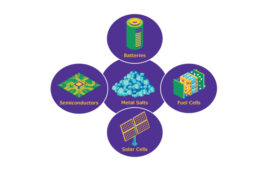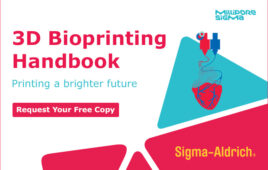
Losing university access doesn’t mean losing access to articles anymore
By DeepDyve Digital Library Team
Many researchers are surprised to find that leaving university also means leaving behind something they didn’t expect—easy access to peer-reviewed literature. Especially for those who have gone to work at startups or other smaller organizations, finding a way to do the systematic literature reviews needed for regulatory requirements—or even just keep up-to-date on their fields—can require spending time scouring the web, spending lots of money, or both.
“I used to be able to go to the library to find whatever I needed,” says bioinformatician Dan Morgan. “Then when I graduated I went to work for a small company that didn’t have the budget to buy subscriptions to dozens of journals. Now when I need to look at an article, I often have to search all over to try to find a way to read it.”
And once a researcher does find an article, organizing it becomes another chore.
“Every person on my team manages their papers a different way,” says Morgan. “Some use reference managers, some put them on cloud drives, some just keep them on their own computers. It’s hard to see what other people have found in any organized way.”
William Park, CEO of literature platform DeepDyve, has heard all this before—many times.
“There are a lot of products on the market designed for large institutional libraries,” says Park. “And there are a lot of products designed for individual researchers. But after talking with our users, we saw a clear, unmet need for the tens of thousands of organizations in the middle: small to medium-sized companies that still need to access and manage literature from many different publishers, but don’t have massive budgets for it.”
From these conversations was born the DeepDyve Digital Library: a platform that is designed to make it easy and affordable for research organizations to discover, access, organize, and collaborate on peer-reviewed papers. But it’s an innovation that was nearly a decade in the making.
“We’ve been around for about ten years,” says Park, “We were founded by two guys in this exact situation—scientists who had just graduated and went to work for small companies and couldn’t believe how hard it suddenly was to find papers.” Park and his team, inspired by the changes that streaming music and video services had brought to digital media, decided to see if they could apply that same model to peer-reviewed journals.
“We started meeting with publishers to bring this new idea to them: a service where users could read articles online for a flat monthly fee rather than purchasing and downloading individual articles.” Publishers—like Springer Nature, Wiley, and The New England Journal of Medicine —signed on, and the users followed. And then something unexpected happened.
“When we first started, our users were individual researchers. Then as our full-text collection grew past fifteen million articles or so, we started to see users ask us for group plans they could use for their whole team. That’s when we realized there was a larger need out there.” And when they talked to users, they heard that just accessing papers was only part of the battle.
“The most common complaint we heard, over and over, was that every article and tool is in a different silo,” says Park. “There is a tremendous amount of wasted time and money trying to find papers with the current tools on the market, a lot of what they find has iffy copyright-compliance, and it’s virtually impossible to share or collaborate with colleagues. So we built the Digital Library to be a one-stop platform that allows researchers to find and access virtually any paper, including ones that the organization has already purchased, all from one place, and easily organize those papers with their team.”
Complexity also came up in how easy it was to install and maintain tools. “Our IT team has its hands full already,” says Morgan. “So many of the things we looked at required a lot of set up and maintenance; we don’t have the time or the resources for that.” DeepDyve designed the Digital Library to be fully cloud-based, with no setup or ongoing maintenance required.
So how has the response been? “We’ve had companies look at a ten-minute demo and sign on right away,” says Park. “It’s really incredible how huge the demand is for something that solves these problems that organizations have had for years.” And the initial release was just the beginning. “We’ve already gotten so many great ideas from our users about how we can make the Digital Library even better. We want this to be something that makes finding and managing literature something research organizations don’t even have to think about anymore. Because wouldn’t it be great if they could just focus on their research?”
Sponsored content by DeepDyve





Great idea long overdue. Frustrating to have to telll a university researcher that I cannot send them the paper on a site such as ResearchGate because a major scientific publisher threatened to cut me off. So I have to ask them to send me the request to my university account so I can send them my author copy. Some publishers, especially of books, don’t even send us an author copy for the chapter I wrote and contributed to the text. What gives?
I have not seen the content and the costs/services offered but as a consultant I constantly struggle to get scientific journal papers for learning and keeping up with polymeric materials and the associated technology. This is dream come true. OMG